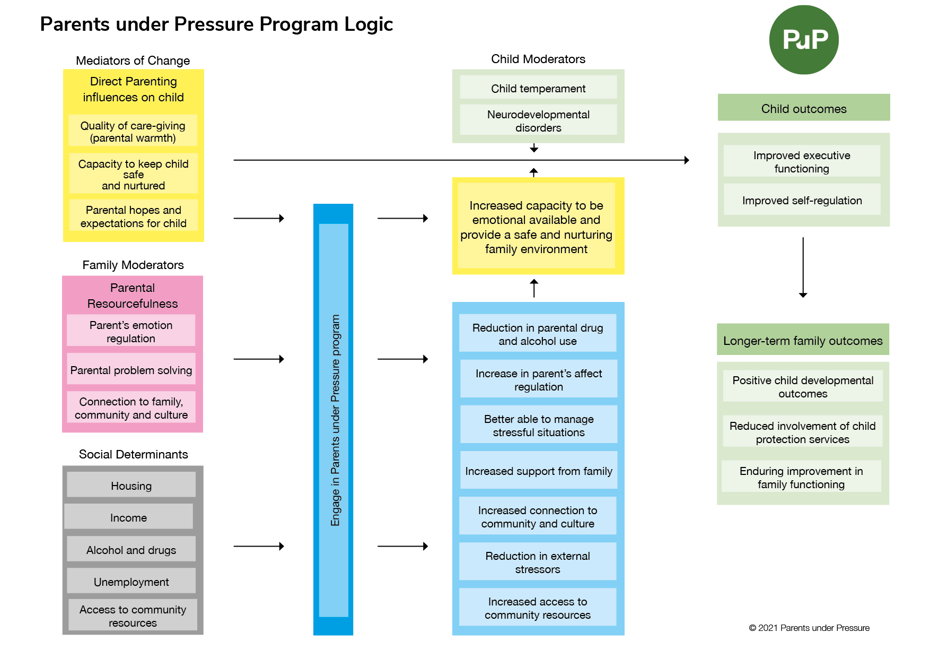Theory of change: The PuP program aims to support the optimal development of children by an enhancement of self-regulation. The underlying program logic builds on decades of research linking the capacity for self-regulation, underpinned by improvements in executive functioning, to child characteristics and the broader family ecology. Child outcome is directly influenced by the quality of caregiving that includes supporting a child to feel safe and nurtured. In order to achieve these goals, parents and caregivers need to be able to manage their own emotional state and have personal resources that allow them to actively problem solve in situations of extreme stress. Social determinants of health impact on parental capacity and can be addressed, in part, by enhancement of connection to family, community, culture and spirituality.


